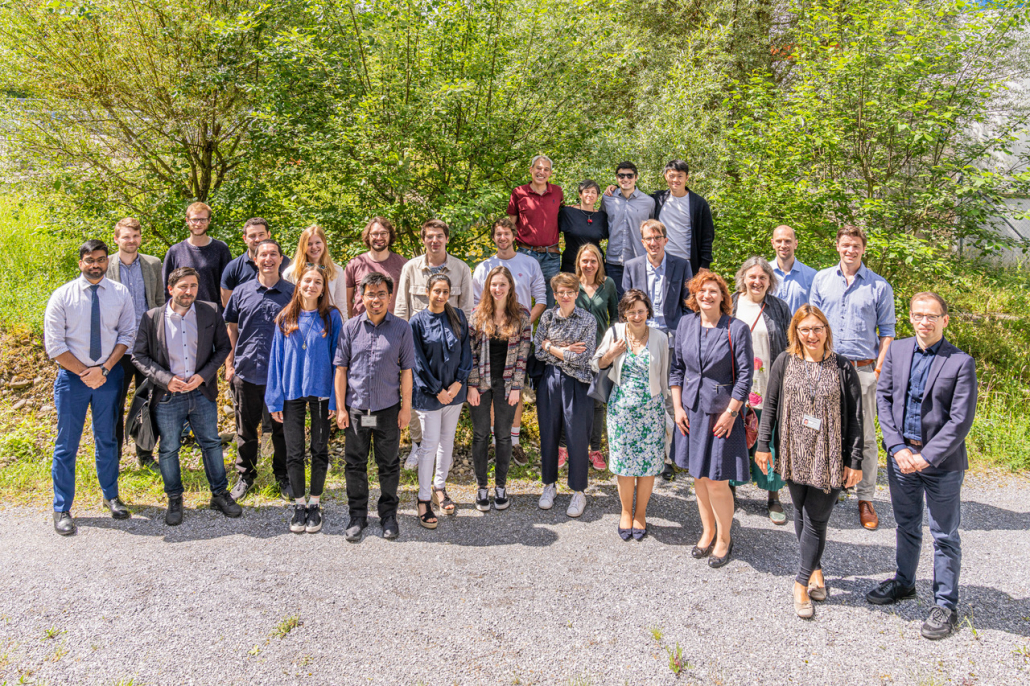
Cosylab hosts a new generation of scientists focusing on Real-time Adaptive Particle Therapy of Cancer (RAPTOR)
Ljubljana, Slovenia, Aug 24, 2022 — The RAPTOR Consortium, an EU-funded group of 13 beneficiaries from all over Europe cooperating on bringing adaptive particle therapy to the clinic, and Cosylab, RAPTOR’s founding member and a leading provider of software solutions for the planet’s most complex systems, today announced that Cosylab is hosting the 2nd RAPTOR School “Loop Requirements” in Ljubljana, from September 4 to 9, 2022. The event is aimed at a new generation of entrepreneurial and innovative scientists who will have a long-term impact on advanced adaptive particle therapy. The RAPTOR community first met at Cosylab in 2018 and is now coming back to one of its birthplaces.
RAPTOR (Real-time Adaptive Particle Therapy of Cancer) is a ground-breaking and multidisciplinary project funded by the European Union to provide better-targeted radiation therapy to cancer patients. The specific aim of RAPTOR is to research and prove the benefits of interventional particle therapy (PT) for advanced cancer care in the clinical environment. The RAPTOR project will change the paradigm of PT treatment by implementing a seamless, online adaptive PT treatment loop.
Adapting PT plans while the patient is on the treatment table has the potential to provide truly personalised treatments, allowing for better target control and less toxicity. Adaptive PT in the clinic will be a practical, real-time system for rapidly creating dynamic treatment plans that consider individual changes in patient anatomy. It is the solution that patients, oncologists and hospitals desperately need, as it will substantially reduce radiation treatment margins and uncertainties, and improve cancer patient outcomes with fewer adverse side effects.
“The reliability of PT has increased in recent years with robust treatment planning; however, as with any conformal radiotherapy, it remains sensitive to changes in anatomy that must be addressed to exploit the full benefit of PT. The clinical workflow is based on a patient’s initial computed tomography (CT) scan. Since the treatment usually lasts several weeks, the initial treatment plan likely becomes less valid due to the changes in the patient’s anatomy as the treatment progresses. RAPTOR aims to change this by preparing a daily PT treatment plan for each patient based on current patient images,” commented Dr Francesca Albertini, Medical Physicist at Paul Scherer Institut (PSI) and Coordinator of the RAPTOR project.
The RAPTOR Consortium aims to train a new generation of researchers, enabling a paradigm shift from treatment approaches that are manual and stepwise to those that are automatic and seamless while assuring standardised clinical implementation of real-time adaptive PT.
The main objectives of the RAPTOR School “Loop Requirements” are to provide advanced scientific knowledge to translate and validate ideas and concepts into novel clinical tools to increase efficiency, cost-effectiveness and innovation in the rapidly evolving field of PT. In addition to technical and scientific courses, soft foundational skills for entrepreneurship, intellectual property, and certification management are also taught.
“At Cosylab, we look forward to hosting the RAPTOR researchers working to significantly reduce the margins and uncertainties of radiation treatment and improve the outcomes for cancer patients with fewer adverse side effects. As one of the three co-founders of RAPTOR, along with Prof. Thomas Bortfeld and Prof. Robert Jeraj, I am delighted to see that the project’s success has exceeded our initial hopes. I believe that PT can become a part of modern value-based healthcare that promises even better outcomes for cancer patients at a cost that society can afford,” emphasised Dr Mark Plesko, CEO at Cosylab.
Read our blog “The RAPTOR Project: How to Create a Real-time Tumour-eating PT Beast” to learn more about adaptive particle therapy and the RAPTOR project.

